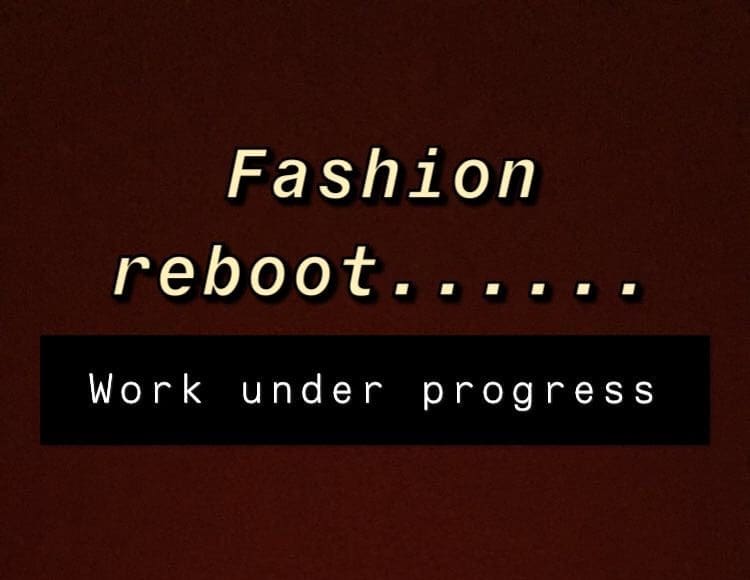IT TAKES A CRISIS TO FORM A TACTIC AND FASHION IS NO EXCEPTION.
Some of the best designs were born from struggle. Coco Chanel created women’s couture pieces from foraged fabrics when materials were scarce around the period of the First World War, such as jersey men’s underwear. This led to a huge shift in women’s wear from restrained corsets to comfortable attire, making Chanel the innovative brand to beat.
During the 1918 Spanish influenza pandemic, surgical face masks became a staple item worn at all times both indoors and outdoors due to their essential protection. Escapist fashion of the 1930s and 40s originated from an epoch of political upheaval and future uncertainty. Restricted to repairing and reusing, creative remaking efforts became forms of expression during these times of confinement.


DIOR’S “NEW LOOK” 1940s. COUPLE WEARING FACE MASK, 1918.
‘Escape and Evade’ maps were printed onto durable silk during the 1940s to be easily concealed under soldiers’ clothing. These maps were then re-used to produce items of clothing post-WWII, when fabrics were still being rationed. Similarly, the crisis that we are now finding ourselves in will undoubtedly initiate a shift in how we interpret fashion. Like the effect of past world wars and pandemics, we too will have to focus on quality over quantity, practicality over vanity.
This is a wake-up call for both us as consumers and for the industry as a whole. The threat that this pandemic holds over our heads is a call to action for the fashion industry to slow down, move away from mass production and change direction, before an even larger problem is at hand.
AFTER CRISIS COMES EMPOWERMENT
Like Christian Dior’s freeing ‘New Look’ designs following WWII, Fashion post-corona could follow suit in the form of sweeping, colorful fabrics, maximalist shapes, bold co-ordinates and unrestricted silhouettes. The difference from recent trends, however, will lie in our altered mind-sets. We will probably feel both battered and relieved. A sense of urgency to make the most of our health, liberty, vitality and hopefully, our Earth, may ensue, image being much lower down on our list of priorities. We might therefore want easy-to-wear, durable items that will see us through a cyclical chain of events – precious time will not be wasted fussing over a flimsy cross-over dress.
We are creatures of habit with a pack mentality, we will always be influenced by the actions of others. But perhaps this global shut-down will have one benefit: the stalling of the distended fashion industry could prompt a sense of realization in buyers for the actual irrelevance of being an avid trend follower.
We may have known but not truly acknowledged the fact that life and society as we know it is fragile, that we are just fortunate to have the fundamentals – health, family, homes, food – rather than a Dior dress or Gucci shoes
Now, we have been forced to acknowledge it. The economic crisis that has been thrust upon us has been set to overtake that of the Great Depression. We may be drawn to celebratory attires in the midst of our victory post corona, but without disposable incomes to stock up on fast fashion trends we will have to invest in more essential goods and be more creative with what we already have. That means a potential return of sewing skills, made-to-last rather than made-to-wear-for-a-minute products, creative re-invention concepts, and the art of wardrobe swaps.
Let’s think on a potential return of sewing skills, made-to-last rather than made-to-wear-for-a-minute products, creative re-invention concepts, and the art of wardrobe swaps.
The clock is going to have to be turned back on mass-production of disposable items (at least until our wallets have recovered) and these trying times will unfortunately leave a lot of brands fallen at the wayside. We have already seen numerous global store closures, drops in stock prices, cancelled fashion shows and postponed events. A huge reshuffling will occur, restarting the entire industry. To stay afloat, brands will need to be savvy and sustainable. That leaves us and our own creativity, cradled by cabin fever. When the rule board is dismantled, anything goes. Fashion could return to its basic beauty, an expression of individuality. And in the process, we can hope that our Earth will be able to heal some more.
”The ambiguity of the current situation demands the industry to adapt to an effective, efficient and responsible working environment. We not only need to follow a sustainable approach towards material usage, but also support and nurture the team and craftsmen. We need to economically strategies and plan the upcoming seasons to make sure things soon roll back to being normal,”
WILL COVID-19 CHANGE THE WAY WE DRESS?
People are shopping for what they can wear right now, while many of them are still in lockdown. While active wear and loungewear are on trend, it is expected the pandemic could change the way we dress even when it is over. The Great Depression and World War II transformed people’s wardrobes; COVID-19 unavoidably will become a new trendsetter, but it is up to designers to lead this change.
We should consider this pandemic as a sign of all our mistakes in the supply chain we made in the past stop over buying and start buying ethical and we should start investing in pieces that can be worn several times and guess there is no shame in repeating clothes.
If there is one thing this pandemic is going to teach us is to think about our buying habits and change the consumer our habits. Just think about it do we actually need these many clothes or just keep on buying and buying and piling up my wardrobe or maybe just invest in pieces that can be worn several times and what’s the shame in repeating clothes by re wearing and restyling them.
By Bhavika Gulrajani
Please do stay well connected with us on our social media platforms:
https://www.facebook.com/fashionvaluechain/
https://in.pinterest.com/fashionvaluechain/
https://www.linkedin.com/company/textilevaluechain/

